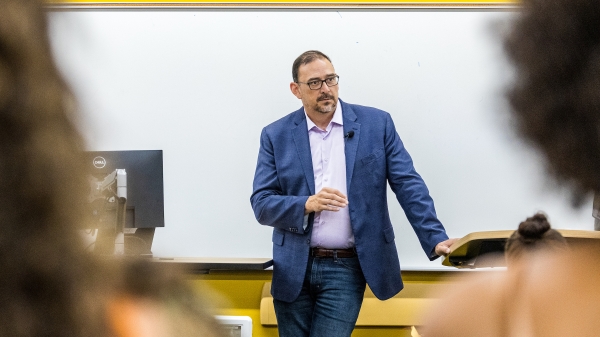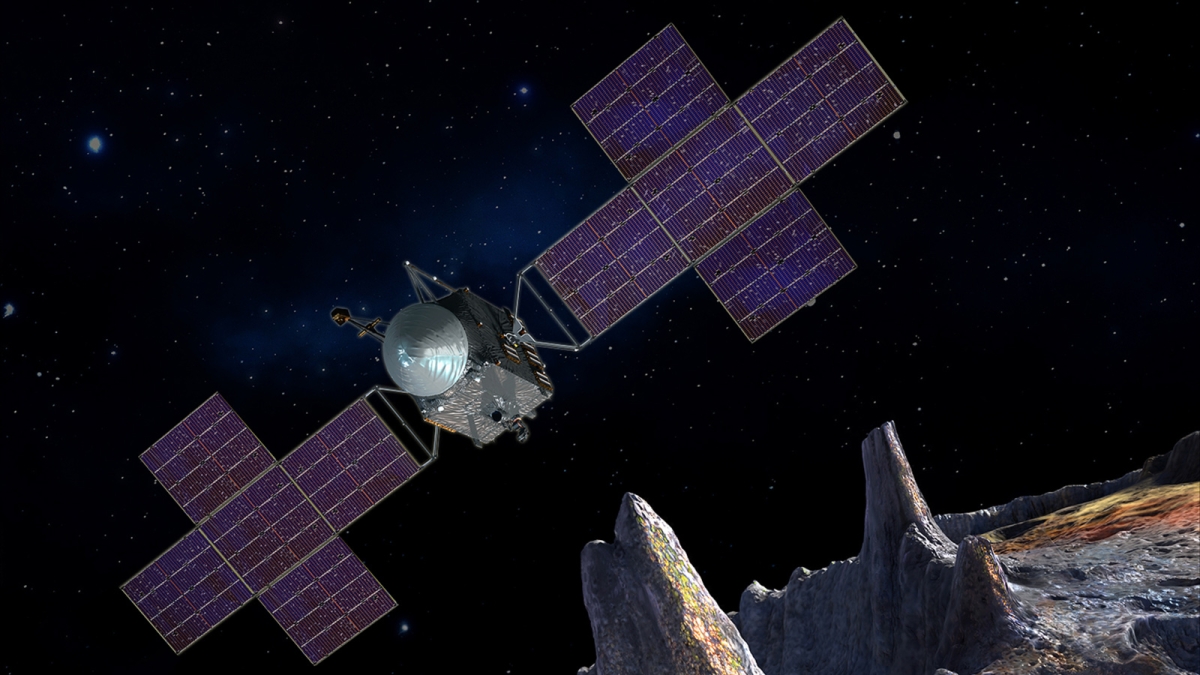In the week marking the sixth anniversary of the end of NASA’s Space Shuttle program, scientists continue to make the case for space.
Arizona State University’s Lindy Elkins-Tanton was among those calling on the U.S. government to re-energize its support of deep-space research at a hearing before the House Committee on Science, Space and Technology in Washington, D.C., on July 18.
Elkins-Tanton, Foundation Professor and director of ASU’s School of Earth and Space Exploration, took her place on the national stage to offer lawmakers a peek into the known-unknown and share reasons why expeditions like NASA’s ASU-led Psyche mission is critical to our future in space.
“Every time we do something in space it surprises us,” Elkins-Tanton told members of the committee. She emphasized the importance of creating a roadmap toward bigger, flagship missions through projects such as Psyche, noting, “We must try these smaller missions to find out where the biggest surprises are, and then put our money on making the big big discoveries.”
After 135 missions that helped construct the International Space Station and service various Spacelab missions, NASA ended its 30-year Space Shuttle program on July 21, 2011, with the completed landing of the shuttle Atlantis at the Kennedy Space Center in Florida. Many worried that the end of the program would bring U.S. space exploration and research to a halt. But six years after the fact, the program still inspires.
Psyche is unquestionably one of the most profound space projects ASU has embarked upon in recent years. But it is not the only mission with an ASU nameplate. On the road to discoveries, the university is involved in at least 15 other missions, all of which engage students in science and engineering. And there are some — including Psyche — that also involve student interns in education, outreach and art. It’s this intersection of interdisciplinary collaboration that Elkins-Tanton said is paramount to moving space exploration to the next level and what she and ASU President Michael Crow are working on through the new Interplanetary InitiativeThe initiative is bringing together societal, educational and technical capabilities and concepts for space exploration. to get there.
As the principal investigator of the NASA Discovery Mission Psyche, Elkins-Tanton and her team are building plans — and a spacecraft — to journey to the asteroid Psyche starting August 2022. Discovered more than 165 years ago by Italian astronomer Annibale de Gasparis, Psyche is in the asteroid belt between Mars and Jupiter — for comparison, about three times farther from the sun than the Earth is to the sun. The asteroid is believed to be composed of almost all metal and may be the core remnant of a small, early-formed planet.
The mission to Psyche is unique as a first-time exploration of a metal world. Through the added demonstration of the Deep Space Optical Communications tool to test laser communications between deep space and Earth, scientists will be able to study Psyche and compare the asteroid’s composition to models for the Earth’s core.
Members of the House Science, Space and Technology group also heard from four other planetary experts, each of whom shared status updates on their respective exploratory missions, including the Mars Rover 2020 and the Europa Clipper, which is set to launch in 2022 to study Jupiter’s moon Europa for habitability.
All of the scientists that participated in the hearing touted the conclusions of the U.S. National Research Council’s Planetary Decadal Survey, which helps the government, researchers and scientists prioritize space-exploration quests and their funding. The study stressed the need for maintaining a balanced portfolio of small, medium and flagship missions in order to enable more discoveries and address bigger challenges both in space and on Earth.
More Law, journalism and politics

New report documents Latinos’ critical roles in AI
According to a new report that traces the important role Latinos are playing in the growth of artificial intelligence technology across the country, Latinos are early adopters of AI.The 2024 Latino…

ASU's Carnegie-Knight News21 project examines the state of American democracy
In the latest project of Carnegie-Knight News21, a national reporting initiative and fellowship headquartered at Arizona State University’s Walter Cronkite School of Journalism and Mass Communication…

Arizona secretary of state encourages students to vote
Arizona Secretary of State Adrian Fontes looked right and left, taking in the more than 100 students who gathered to hear him speak in room 103 of Wilson Hall.He then told the students in the Intro…
